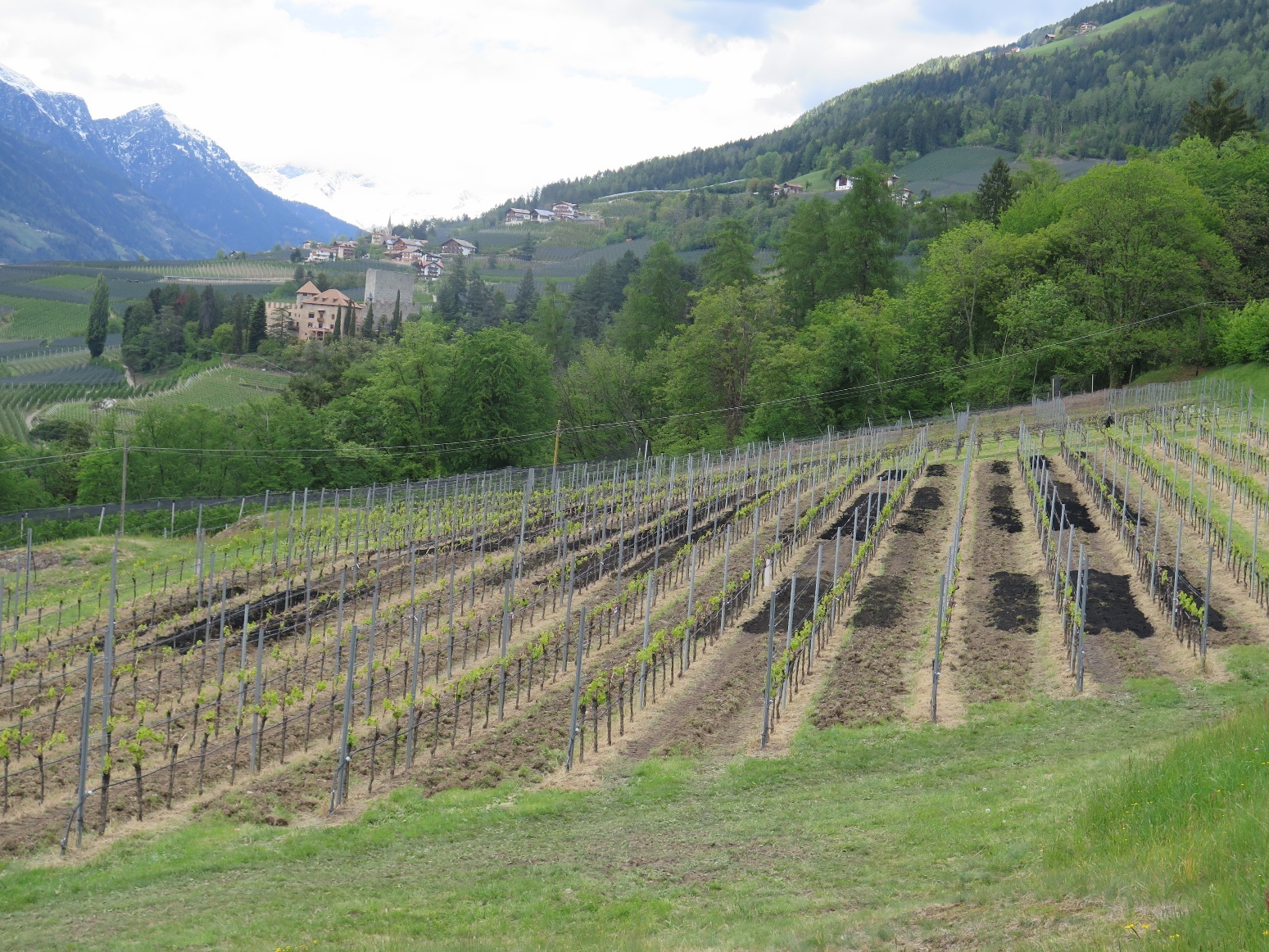Die Verwendung von Pflanzenkohle (Biochar) als Bodenverbesserungsmittel hatte keine Auswirkungen auf die Weinqualität in einem Müller-Thurgau-Weinberg in Südtirol (Italien)
Abstract
Die Verwendung von Biokohle (biochar) als Bodenverbesserungsmittel in der Landwirtschaft hat uralte Ursprünge: Sie soll die Bodenfruchtbarkeit durch Veränderung der chemischen und physikalischen Eigenschaften des Bodens verbessern. Heute ist Biokohle auch wegen ihrer langfristigen Kohlenstoffbindung von Interesse. Angesichts des hohen Potenzials von Biokohle für die Wasser- und Nährstoffbindung kann ihr Einsatz im Weinbau möglicherweise die Qualität der Trauben und des Weins beeinträchtigen, da ein moderates Wasserdefizit und eine begrenzte Stickstoffverfügbarkeit notwendige Voraussetzungen für die Erzeugung hochwertiger Trauben sind. Ziel dieser Studie war es, die Auswirkungen von Biokohle als Bodenzusatz auf die Trauben- und Weinqualität zu ermitteln. Die Studie zeigte, dass die Zugabe von reiner Biokohle und von mit Kompost angereicherter Biokohle in Böden die organoleptischen Eigenschaften des Weins nicht negativ beeinflusste. Außerdem gab es keine signifikanten Unterschiede zwischen den flüchtigen organischen Verbindungen (VOC) von Weinen, die aus mit Biokohle behandelten Trauben hergestellt wurden, und denen der unbehandelten Kontrollgruppe. Reine Biokohle oder auch mäßig mit Kompost angereicherte Biokohle als Bodenzusatz veränderte weder die Stickstoffverfügbarkeit im Boden dauerhaft, noch das vegetative Wachstum oder die Produktivität der Reben. Daher kann die Verwendung von Biokohle im Weinbau empfohlen werden, um den pH-Wert des Bodens zu korrigieren, seine Wasseraufnahme und -speicherung zu erhöhen und langfristig Kohlenstoff zu binden, ohne dass sich dies nachteilig auf das Wachstum oder die Produktivität auswirkt und die Qualität des entstehenden Weins erhalten bleibt.DOI:
https://doi.org/10.23796/LJ/2024.003
Downloads
Veröffentlicht
27.02.2024
Zitationsvorschlag
Raifer, B., Lucchetta, V., Loesch, M., Chitarrini, G., Dordevic, N., Matteazzi, A., & Sanoll, C. (2024). Die Verwendung von Pflanzenkohle (Biochar) als Bodenverbesserungsmittel hatte keine Auswirkungen auf die Weinqualität in einem Müller-Thurgau-Weinberg in Südtirol (Italien). Laimburg Journal, 6. https://doi.org/10.23796/LJ/2024.003
Ausgabe
Rubrik
Originalarbeit



